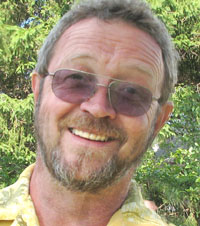Fake news, unnecessary news, and essential news are horribly stirred together in today’s world of information. The problem was that not enough people read the news and preferred to be uninformed beyond the evening network half-hour summaries, the front page of the local paper, or whatever the radio said on the ride to work.
Now it seems everybody is reading the news, but too much of the news is drivel and crap. It used to be that when capital interests wanted to hide information from the public, like chemical spills or tax-free business deals, they used to simply buy the news outlets and kill the stories.
However, with the proliferation of the internet and grass-roots independent news hounds, dead stories had a way of being revived and walking dead across blogs, message boards and BitTorrent, and shared again and again.
Thus, capital interests updated their strategy. It’s the same strategy once used to thwart online music piracy. Back when collecting bootleg MP3 music files was a trend, and the music industry realized that they couldn’t sue every single server, they resorted to flooding the market with garbage files. When downloaded and played, these fake files were either static, silence or the opening stanza of the song followed by nothingness. Pretty soon a lot of bootleggers decided that downloading the ore to find gems was too cumbersome and backed off.
Now that flood has reached the news. People are no longer uninformed, they are misinformed. Capital interests hard for victory have spurted an explosion of URLs onto the Internet that lead to fake news sites. So many fake-news websites exist, that we now have fake-news-tracking websites. We even have fake fake-news tracking sites that shuffle into their lists legitimate websites that disagree with them.
Several sources report approximately 58 significant fake news websites for 2016. There are even more clickbait sites, over 100 of those. These are websites that take pieces of legitimate stories and infuse them with insinuation that instills fear or anger. They are distractions, similar to the S-curves built at slaughterhouses to fool the cattle.
What else these smoke-and-mirror maestros do is spend all day sharing their garbage across Facebook, Twitter and many other popular intermediaries, where they get shared again and again. It only takes imagination and access to the Internet to dupe millions of people.
The historical irony is that reporting real news is a financial black hole, so why would there be so many new news startup websites? One can’t investigate news based on click profits.
Great cost must be absorbed to investigate world affairs. It involves multiple journalists flying, staying in hotels, eating, renting cabs, collecting their salaries, paying sources’ expenses, and in the end, it may be a dead end – no story.
The high cost of providing honest news is why networks moved news management over to their entertainment departments back in the 1970s (See Chayefsky’s movie “Network”).
Sensationalized news earned viewers and increased ratings. This pushed networks to renege on a long-respected pact they had with the U.S. government to provide both sides of controversial issues of public interest in exchange for free airwaves. The people’s airwaves were once loaned to networks, now networks have assumed ownership.
We used to have a policy called the Fairness Doctrine that required objectivity from broadcast television and radio news. That policy was disposed of in 1987, spawning the next era of shock-jock opinionated news pundits. Celebrity and attitude became more important, appealing and profitable than cold, hard facts.
Once the internet came along, even though the backbone came from the government and Eisenhower’s DARPA program, the responsibility for fairness flew right out the window. No doctrine exists requiring URLs to tell the truth.
Beyond that: Even if we’re not following the seamy, twisted, corrupt, madhouse of political news, there’s just too much information out there. So much news is at our disposal that is has become more difficult to sort than to seek.
Yes, it’s just my opinion, and on the flipside, one could say, “Now, there is news for every interest, be it forging chisels or coding in Esperanto.” That’s true, and just because you have at your fingertips a device connected to all the catalogued information on the planet, it doesn’t mean you have to read it all. Just because you live next door doesn’t mean you have to read every book in the library.
Still, we’ve created a detrimental information haystack. News needles are harder to find. That’s not good for America. Curious citizens seeking pertinent information on current affairs are inundated with distractions, diversions, eye candy, intriguing headlines, funny intermissions, rarity, and come-ons. It’s too easy to get sidetracked and use up all the daily time you’ve devoted to staying informed on reading about a moose caught in a bike rack, two cats fighting over a bowl of milk, or a way to roast those little potatoes until they are golden brown.
Besides Twitter, Facebook, Buzzfeed and Reddit, I use the app Flipboard, a newsfeed compiler that provides an infinite newspaper on topics of my choice. It’s pre-sorted to my specific interests, and I still get lost in it. When browsing, rather than searching, I’ll read 100 headlines with photos for every full story I open. Same goes for Twitter. I’ll scroll 20 yards before I follow a link.
Having an abundant resource is a good thing. Scrolling through it can be fun, entertaining, might I say, alluring, but when I close the screen and reflect, I don’t feel a lot smarter.
Steve Gibbs is a retired Benicia High School teacher who has written a column for The Herald since 1985.







Leave a Reply